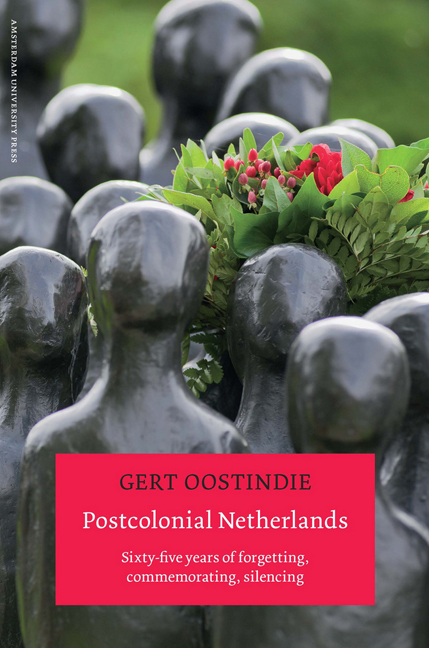Book contents
- Frontmatter
- Contents
- Introduction
- 1 Decolonization, Migration and the Postcolonial Bonus
- 2 Citizenship: Rights, Participation, Identification
- 3 The Struggle for Recognition: war and the Silent Migration
- 4 The Individualization of Identity
- 5 Imagining Colonialism
- 6 Transnationalism: a Turning Tide?
- 7 An International Perspective
- 8 ‘Postcolonial’ (in the) Netherlands
- Notes
- Bibliography
- Acknowledgements
- Index of People, Organizations and Memorial Sites
8 - ‘Postcolonial’ (in the) Netherlands
Published online by Cambridge University Press: 20 January 2021
- Frontmatter
- Contents
- Introduction
- 1 Decolonization, Migration and the Postcolonial Bonus
- 2 Citizenship: Rights, Participation, Identification
- 3 The Struggle for Recognition: war and the Silent Migration
- 4 The Individualization of Identity
- 5 Imagining Colonialism
- 6 Transnationalism: a Turning Tide?
- 7 An International Perspective
- 8 ‘Postcolonial’ (in the) Netherlands
- Notes
- Bibliography
- Acknowledgements
- Index of People, Organizations and Memorial Sites
Summary
Post-war, the Netherlands became richer, less segmented (verzuild), ethnically more diverse, and more embedded in Europe. Immigration and migrants have been controversial subjects of debate for sixty-five years now, but nevertheless, in that time the Netherlands admitted vast numbers of newcomers and became multicultural. This change raised the issue of how migrants and their children related and ought to relate to Dutch culture. Inevitably, the question that then had to be answered is what that culture, or identity, actually was. The answer has remained controversial; that the answer in 1945 would have been different from the answer in 1975 or 2005 is obvious.
The post-war rebuilding of the Netherlands was initially tackled with backs turned to history. In the early post-war years of ‘discipline and asceticism’ there was no time to dwell on past suffering – this attitude was also made easier because the section of the population that had been most hit by the war had been exterminated elsewhere and by others. It was not until well into the 1960s that the few surviving Jews began to be heard and the persecution of the Jews became part of the nation's memorial culture. In the decades that followed it was precisely the Holocaust and the powerlessness or unwillingness to prevent this genocide that set the benchmark for moralizing debates about the nation's history, the nation, and the treatment of post-war migrants. The lot of the Jews became a horrible frame of reference, but also a model in the struggle for symbolic and financial reparations.
The discovery that yet another traumatic wartime history was alive on Dutch soil took a long time to emerge. Only in the 1980s did the repatriates from the Netherlands East Indies begin to make strides in their battle to win a place in national World War II commemorations. For strategic reasons, at times rationalized in shockingly opportunistic ways, reference was made to the earlier acknowledgement of recent Jewish history, including the material compensation that had been paid. This comparison reflected the deeply held frustration about suffering that was not understood and rights that were denied. The expression of such emotions was increasingly felt to be justified and publicly and politically legitimized. And, indeed, remorseful gestures of recognition have been an essential feature of Dutch politics since the 1970s.
- Type
- Chapter
- Information
- Postcolonial NetherlandsSixty-Five Years of Forgetting, Commemorating, Silencing, pp. 215 - 242Publisher: Amsterdam University PressPrint publication year: 2012



